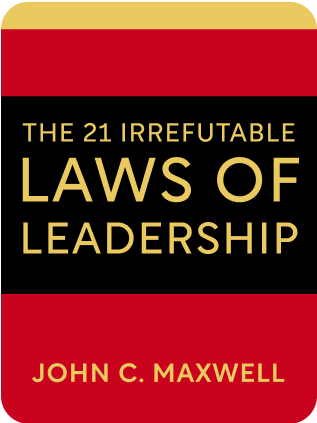

This article is an excerpt from the Shortform book guide to "The 21 Irrefutable Laws Of Leadership" by John C. Maxwell. Shortform has the world's best summaries and analyses of books you should be reading.
Like this article? Sign up for a free trial here .
What is the Law of Solid Ground? What do you think is the foundation of good leadership?
The Law of Solid Ground is the sixth law of leadership from The 21 Irrefutable Laws of Leadership by John C. Maxwell. This law states that leadership is built on a foundation of trust. If a leader doesn’t have their followers’ trust, or they’ve broken it, they can’t exert influence over those people.
Keep reading to learn about the Law of Solid ground plus some real-world examples of its application.
The Law of Solid Ground and the Foundation of Good Leadership
According to John C. Maxwell, trustworthiness is the most important trait in a leader. You build trust by having good character. If you’re honest, caring, fair, hardworking, and/or a variety of other traits followers find appealing, they’ll trust and follow you. If you lie and cheat, followers will turn away. Your character communicates three things about your trustworthiness as a leader to your followers:
Your character shows whether or not you are consistent. People want to know if they can count on you, and if they can always count on you, in every situation.
Your character demonstrates your leadership potential. Talent is only a portion of potential. To be a good leader and get things done, you must have positive personality traits.
Your character determines whether or not people respect you. You build respect by making good decisions, admitting mistakes, and prioritizing others. Your character determines how you make decisions, handle your mistakes, and choose your priorities.
You can measure your follower’s trust in your character by how much they share with you. If they share both positive and negative opinions, and both good and bad news with you, they trust you. You can measure how much your peers and other leaders trust your character by how much responsibility they give you.
Trust is hard to build and easy to break. That said, everyone’s going to make mistakes and break trust at some point in their lives. The key to regaining trust is demonstrating good character. Admit your mistakes. Do better next time. If your mistake was related to ability (for example, you’re an Olympic soccer goalie and you missed a save), it’s easier to recover from. If your mistake was related to character (for example, you lied about the status of a project), it will be harder or impossible to regain trust.
Example of a Failed Application of the Law: Vietnam War
Initially, the American population supported the Vietnam War, in spite of large casualties. Americans believed that the war was important to the fight against communism.
However, over time public support eroded. The war was handled badly, it dragged on even after leaders realized they couldn’t win, and McNamara and President Johnson misled or outright lied to the country about how things were going. Once people realized that they weren’t being told the truth, their faith in their leaders dissolved and they protested. McNamara
resigned. Johnson didn’t run for reelection. But the distrust didn’t end with those specific leaders. Even today, Americans still distrust their political leaders. (Shortform note: this book was published in 2007).
Example of a Successful Application of the Law: John C. Maxwell
When John C. Maxwell was the senior pastor of Skyline Church, he accidentally broke trust with his congregation. He made three major decisions (fired someone, cancelled a service, and changed part of the Christmas show) without following proper processes. Usually, any decision-making occurred only after Maxwell had come up with a plan, consulted his other leaders, and given them and himself enough time to influence the congregation. However, in this case, he made the decisions quickly and by himself. His followers began to question his leadership.
However, because Maxwell had been successfully leading the church for eight years, he was able to recover. He publicly apologized, asked for forgiveness, and regained his people’s trust.
Applying the Law of Solid Ground
To develop your character, focus on three main traits:
- Integrity. Develop this by being honest, even when it hurts. Don’t tell half-truths, talk around things, or tell lies (even white ones).
- Authenticity. Develop this by being yourself.
- Discipline. Develop this by doing moral things every day, even when you don’t feel like it.

———End of Preview———
Like what you just read? Read the rest of the world's best book summary and analysis of John C. Maxwell's "The 21 Irrefutable Laws Of Leadership" at Shortform .
Here's what you'll find in our full The 21 Irrefutable Laws Of Leadership summary :
- Why working with people is the only way to do meaningful work
- How to become the kind of person that can get things done
- Why you don't need to be good at all the laws of leadership to be a good leader






